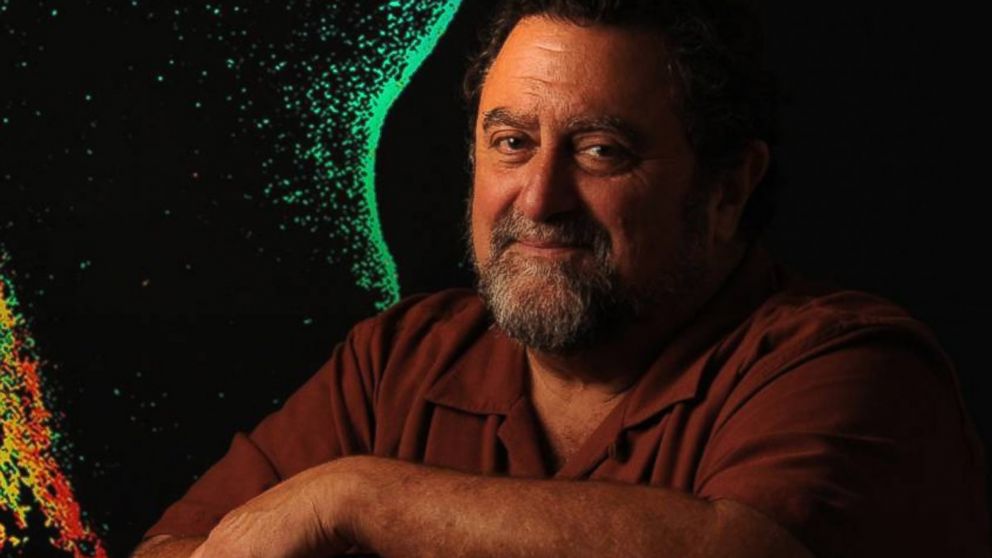Scientist Related to Killers Learns He Has a Psychopath's Brain
Relatives include accused axe murderer Lizzie Borden.

Nov. 30, 2013— -- James Fallon admits he has a lot in common with serial killer Ted Bundy and Columbine assassin Eric Harris. He is aggressive, lacks empathy and is a risk-taker.
Fallon, a professor of psychiatry and human behavior at the University of California Irvine, accidentally discovered what friends and family have suspected for years -- he has all the genetic traits and brain scan patterns of a psychopath.
"When somebody gets mad at me, I never show it -- they can't read it on my face," Fallon, 66, told ABCNews.com. "I never get even immediately, but four years down the road, I get them with revenge."
"I don't have special emotional bonds with those who are close to me -- I treat everyone the same," he said. "I am involved in a lot of charities and good works, and my intentions are good for the world. But I don't have the sense of romance or love I am supposed to have for my wife. It's not there."
But Fallon is not a mass murderer and in his new book, "The Psychopath Inside: A Neuroscientist's Personal Journey Into the Dark Side of the Brain," he tries to understand why.
"I wouldn't want to marry me. ... I can be so manipulative and I am always on the make, but I am not going to kill anyone or rape anyone." -- James Fallon
For years Fallon has worked with criminologists and other legal experts to evaluate the brain for abnormalities. But while volunteering with his own family for a study of Alzheimer's disease, Fallon learned on his PET scan that he has all the features of a psychopath.
"The last scan in the pile was strikingly odd," he writes about the 2005 discovery. "In fact it looked exactly like the most abnormal of the scans I had just been writing about, suggesting that the poor individual it belonged to was a psychopath -- or at least shared an uncomfortable amount of traits with one. ... When I found out who the scan belonged to, I had to believe there was a mistake. ... But there had been no mistake. The scan was mine."
Fallon, who has three children and five grandchildren, analyzes why he is a law-abiding, though impulse-driven, citizen, and yet other psychopaths with the same genetic predisposition, go on to kill.
Two of his distant relatives were notorious: One, Lizzie Borden, was acquitted of murdering her father and stepmother with a hatchet in 1892. Another, Thomas Cornell, was the first in the American colonies hanged for killing his mother in 1672.
Fallon said he escaped the same fate because of the interplay between nature and nurture. He was raised in a loving family. Still, he had some other telltale signs, such as panic attacks, obsessive-compulsive tendencies and social anxieties.
"Looking at my genetics, I had lethal combination, but I just had the happiest childhood growing up," he said. Fallon's mother had four miscarriages before his birth and, as a result, he said he was, "treated well because they didn't think I would be born."
"There were dark periods I went through, but they didn't bring me to a psychiatrist, but they told my sisters and teachers to watch out for me," he said. "My mother instinctively knew there was a problem."
Conscience and a sense of morality and impulse control lie in the limbic system and in the orbital cortex in the brain, according to Fallon.
"They connect and inhibit each other not unlike the super-ego controlling the id," he said. "It's the interface between the intellectual mind and the emotions attending to them."
Fallon's brain scans show low activity in both regions of the brain.
"No behavior is really evil or bad -- it's all contextual," he said. "There is a time for sex and a time for killing, when someone attacks the family. But it's done in context. The orbital cortex adjudicates the idea of morality and interacts with the amygdala's drive to eat, drink and screw. There would be mayhem if it didn't exist."



